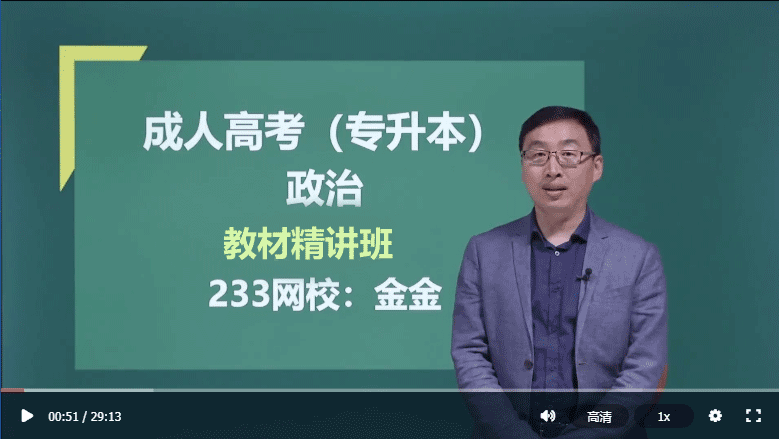╦Ė▀┐ėó’Ę©╔╝Ž░
ę¬
╠¼can▄ŻmayįŻmustļŻ®have to├▓ought toė”├ŻdareęŻused to╚źhad betterwould ratherįĖ┌┐ŽČŪ║▀Čę¬ įŁ .┌ʱȩŠąŻcanmaymustdare▀╝nothave toought toų▒haveoughtnotused to─Ę╩Įused not toę▓didn't use to├Ą├ĮŽČÓŻ╗had betterwould rather─Ę╩Įų▒had better notwould rather not.ą®╠¼╩▒─│ę╗įĪ
̬ʱʹ
ę╗must+have+EDų┤╩Ż┌┐ŽČõŻ¼╩Šį╣╚źę╗ų┐ŽČŲ▓ŌŻ¼╩ŠŽČę╗
1 It around nine o'clock when I drove back home because it was already dark.
A had to be B must have been C was to be D must be
2 John's score on the test is the highest in the class
A he should study last night
B he should have studied last night
C he must have studied last night
D he must had to study last night
3 After searching A for evidence in the housethe police concluded B that the thief must have come in C through the window and stole D the silver while the family was asleep.
may might+have+EDų┤╩Ż┌┐ŽČ═ʱȩŠõŻ¼╩ŠčĘ─▓ŽČŲ▓ŌŻ¼ÓĄ▒┌Ī▄Ż┼Żmightmay šĖąĪ
She might have gone to see her doctor last week but I am not sure.
┌╗╚źęĮ╦Żę▓ę┐ŽČ
Don't worry your husband may not have been hurt seriously.
╝▒Ż╔Ęę▓╦Ą├▓
shouldought to+have+EDų┤╩ŻŽČ╩Š╚źė”╚┤├╗ąĘ±Č©Š╩ŠčĘ╦▒├Ę┬ĪŪ░▀┐╬¬ė”╬¬├Ī
You should have apologized to her for not soon replying to the letter. Ń▒Šė”ŪĖ╦Ą╬¬╩▓├┤├╗▄╝╩▒┼Ī├╗├┤
4 You yesterday if you were really serious about your work.
A ought to comeB ought to be comingC ought to have comeD ought have come
─Īcannot +have+EDų┤
He is an hour late He can have been delayed by fog. Of coursethat's a possibility.┘Ą1ąĪ╩▒╬¬╦Ī╚╗ų╗Ū┐ŌĪŻ
The poem can not have been written by her since she was only five years old then.╩½ą┤─Ż╬¬╩▒5ĻĪŻ
ÕĪócould+have+EDų┤╩Ī╩▒┌▒╩Š╚ź╩▒õŻ¼╦Ą─│┬┐▄╗“▓╗┐čĘ╩▒╔▒╩Š╚ź─│┬Ż╚┤╬┤
I simply can't understand how he could have made such a mistake. ę╝ų▒├┤ßĘĖ─┤
He walked therebut he could have taken a taxi. ╚ź╦Ż╔Ą╩▒╚½ŌĪŻ
couldn't+have+EDų┤╩Ī╩Šę▓▄╗├╗
I couldn't have called you. I wasn't near a telephone. ę▓▄Ėń╗░ęĖ├╗ąĄń╗░
5 We didn't see him at the lecture yesterday.He it.
A mustn't attendedB couldn't have attendedC would have not attendedD needn't have attended
needn't+have+EDų┤╩Ż╩Šį╣╚ź╚┤╦Ż╬¬╩ĄžĪ
6 You all these parcels yourself.The shop would have delivered them if you had asked a shop assistant.
A didn't need to carryB needn't have carriedC needn't carryD didn't need carry
▀Īused to ╩Š╚źŽ░▀Čū┤╠¼č▓┌Ż┌ʱȩ│ąŻę╗didn't use toę▓used not to╩Š├ĪDiduse toused toneveroftenalways├Īūóused tobe used to─▓═¼▀▒╩Šbe accustomed to Ž░─│ū┤╠¼ęĖ╩╗ING╩Įused toėČįŁ╬Żį▒╚Į
He used to drink. ╩Š╚ź╚ŠŲĪ┌▓╦Ī
He is used to wine He is used to drinking wine at each meal.
╩ŠŽ░▀Ż├┐┘Ę╚ĄčŠŲĪ
╦Īhad better╩ŠėČįŁ╬Ż╩Į╬¬had better notįŁ
You had better not follow his behavior. Ń▓╗ę¬č¦
┼Īwould rather ╦╝ŪĪįĖ╩ŠčĪ├Ęę╗┌┐ŽČą║ų▒ėĖįŁ╬Ż±Č©Šwould rather not would rather notįŁ╬Ż▀┐įĖė┤ėŠõŻ¼├┤ėŠ╬Į’Č»ę╗╚ź╩Į╩Šwould rather╩ŠčĪ▀┐╔Ėthan
She would rather sleep than talk rubbish. įĖ╦»įĖ─Ī
7 Did you criticize him for his mistakesYesbut it.
A I'd rather not doB I'd rather not doingC I'd rather not have doneD I'd rather not did
ūó would ratherhad rather╩ŠįĖ├Ęę▓├╗ĪŻĄ╦Ąwould ratherhad rather╚½ę╗Longman Dictionary of Comtemporary English ╦Ąę╗╦ĄķĪŻ╩Ąhad ratherų┤ū╝ėóą╝čŠ╦ĪŪ┐╦ĄŪ▒╚Įę¬─Ż╬¬ę╗Ń┐╝╬¬ū╝ėóŪ▓had rather─Ī
ʮ
1 B╬¬╚Ę░ĖĪ2 C╬¬╚Ę░ĖĪ
3 D╬¬stolen.CDŪ▓ąĄ╬Į’Ż¼DÓĄ▒must have stolen.
4 C╬¬╚Ę░ĖĪ5 B╬¬╚Ę░ĖĪ6 B╬¬╚Ę░ĖĪ7 C╬¬╚Ę░ĖĪ
Ų╝
- 2017╦Ė▀┐ū©ėó’┐╝─ŠčĪ03-28
- 2017╦Ė▀┐ū©ėó’┐╝─ŠčĪ03-24
- 2017╦Ė▀┐ū©ėó’┐╝─ŠčĪ03-24
- 2017╦Ė▀┐ū©ėó’┐╝─ŠčĪ03-24
- 2017╦Ė▀┐ū©ėó’┐╝─ŠčĪ03-24
| ┐╬│╠ū©ęĄ├¹│Ų | Į▓╩” | įŁ╝█/ė┼╗▌╝█ | ├ŌĘč╠Õčķ | ▒©├¹ |
|---|---|---|---|---|
| ė’╬─(Ė▀ŲĄŃ)Š½Į▓░Ó | Ą╦Š²├─ | Żż150 / Żż150 |  |
▒©├¹ |
| ėóė’(Ė▀ŲĄŃ)Š½Į▓░Ó | Monica | Żż150 / Żż150 |  |
▒©├¹ |
| ╩²č¦(╬─)Š½Į▓░Ó | ═§Ę╝ | Żż150 / Żż150 |  |
▒©├¹ |
| ╩²č¦(└Ē)Š½Į▓░Ó | ┬▐ėūųź | Żż150 / Żż150 |  |
▒©├¹ |
| ┤¾č¦ė’╬─(ū©╔²▒Š)Š½Į▓░Ó | ┼Ęč¶░ž┴ž | Żż150 / Żż150 |  |
▒©├¹ |
| ėóė’(ū©╔²▒Š)Š½Į▓░Ó | Monica | Żż150 / Żż150 |  |
▒©├¹ |
| Ė▀Ą╚╩²č¦(ę╗)(ū©╔²▒Š)Š½Į▓░Ó | ═§╠╬ | Żż150 / Żż150 |  |
▒©├¹ |
| Ė▀Ą╚╩²č¦(Č■)(ū©╔²▒Š)Š½Į▓░Ó | ┬▐ėūųź | Żż150 / Żż150 |  |
▒©├¹ |
Ė©Ą╝┐╬│╠
- Ė▀ŲĄŃ-╩²č¦(╬─╩Ę▓ŲŠŁ└Ó)

- ═§Ę╝└Ž╩”
 ├ŌĘč╩į╠²
├ŌĘč╩į╠²
- Ė▀ŲĄŃ-ėóė’

- Monica└Ž╩”
 ├ŌĘč╩į╠²
├ŌĘč╩į╠²
- ū©╔²▒Š-┤¾č¦ė’╬─

- ┼Ęč¶░ž┴ž└Ž╩”
 ├ŌĘč╩į╠²
├ŌĘč╩į╠²
░Ó╝ČĮķ╔▄
╠ū▓═░³║¼Ż║ū©╔²▒ŠVIP░Ó/Ė▀ŲĄŃVIP░ÓŻ©║¼Š½Į▓+šµ╠ŌĮŌ╬÷+─Ż┐╝ĄŃ╠Ō)
╠ū▓═ė┼╩ŲŻ║1Īó╦°Č©║╦ą─┐╝ĄŃ
2Īó┐╝Ū░ĘóĘ┼2╠ū╩į╠Ō
3Īó├ŌĘčųžč¦ę╗┤╬▒ŻšŽ
┼õ╠ūĘ■╬±Ż║1Īó├ŌĘč╠Ō┐Ō
2Īó┐╬│╠Į▓ęÕ+┐╬╝■Ž┬įž+ęŲČ»┐╬╠├







 ├ŌĘč╩į╠²
├ŌĘč╩į╠² 




